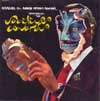 How the mighty have fallen. Not that Andre Afram Asmar might really beconsidered mighty, but his last record for Mush was a beautiful mashupof hip-hop and middle eastern instrumentals that worked on any numberof levels and preserved a sense of genuine respect for all of thesounds it culled. Enter Circus, the MC who manages to take AAA'sproduction and run it into the ground with half-witted rhymes and adeadpan vocal delivery that recalls a suburban, middle-agedbusinessperson reciting a 'rap' in some corporate skill-buildingseminar. The album has a loose theme that revolves around alienabduction, conspiracy theories, and the Bush administration'swar-waging in the middle east. Unfortunately, the serious themes andstupid themes are given just about equal billing, but its all played ina straight-faced way to render none of it funny or effective. The beatsand samples that Circus drowns out might be worthwhile on their own,but it's impossible to separate the voice from the songs. I'll neverquite understand how people who have an ear for quality music and deftMCs can listen to something like Gawd Bless the Faceless Cowardsand feel that it's adequate or even fun to listen to. Inane rhymesdelivered flatly over beats and samples about UFOs might make for a funparty record amongst friends, but only really close friends who aren'ttoo critical, or who are really drunk. Someone got in the car with mewhen this record was on and the first question he asked was 'is this ademo someone sent you?' No, but maybe if someone had heard the demofirst, they could have steered it somewhere productive. As it is, steerclear.
How the mighty have fallen. Not that Andre Afram Asmar might really beconsidered mighty, but his last record for Mush was a beautiful mashupof hip-hop and middle eastern instrumentals that worked on any numberof levels and preserved a sense of genuine respect for all of thesounds it culled. Enter Circus, the MC who manages to take AAA'sproduction and run it into the ground with half-witted rhymes and adeadpan vocal delivery that recalls a suburban, middle-agedbusinessperson reciting a 'rap' in some corporate skill-buildingseminar. The album has a loose theme that revolves around alienabduction, conspiracy theories, and the Bush administration'swar-waging in the middle east. Unfortunately, the serious themes andstupid themes are given just about equal billing, but its all played ina straight-faced way to render none of it funny or effective. The beatsand samples that Circus drowns out might be worthwhile on their own,but it's impossible to separate the voice from the songs. I'll neverquite understand how people who have an ear for quality music and deftMCs can listen to something like Gawd Bless the Faceless Cowardsand feel that it's adequate or even fun to listen to. Inane rhymesdelivered flatly over beats and samples about UFOs might make for a funparty record amongst friends, but only really close friends who aren'ttoo critical, or who are really drunk. Someone got in the car with mewhen this record was on and the first question he asked was 'is this ademo someone sent you?' No, but maybe if someone had heard the demofirst, they could have steered it somewhere productive. As it is, steerclear.
We made it to 700 episodes. While it's not a special episode per se—commemorating this milestone—you can pretty much assume that every episode is special. This one features Mark Spybey & Graham Lewis, Brian Gibson, Sote, Scanner and Neil Leonard, Susumu Yokota, Eleven Pond, Frédéric D. Oberland / Grégory Dargent / Tony Elieh / Wassim Halal, Yellow Swans, Dental waste in Saigon photo by Krisztian. Get involved: subscribe, review, rate, share with your friends, send images! |



 Some of my favorite releases of the last year or so come from the US indie hip-hop contender, Mush. Their recent find, a Japanese import called Neutrino, is being sent out with a sticker comparing the release to DJ Krush, claiming that Krush isn't the only player in Japan's instrumental hip-hop scene. That may be true, but Krush is still a few moves ahead of the rest of the pack if Neutrino's eponymous release is any indication.
Some of my favorite releases of the last year or so come from the US indie hip-hop contender, Mush. Their recent find, a Japanese import called Neutrino, is being sent out with a sticker comparing the release to DJ Krush, claiming that Krush isn't the only player in Japan's instrumental hip-hop scene. That may be true, but Krush is still a few moves ahead of the rest of the pack if Neutrino's eponymous release is any indication. Glitchy electronic music about the problems people face in a modernsociety from a husband and wife team sounds frighteningly close to aWill Ferrell-based SNL skit, but this new EP fits that description, andthe results are ripe for absorption.
Glitchy electronic music about the problems people face in a modernsociety from a husband and wife team sounds frighteningly close to aWill Ferrell-based SNL skit, but this new EP fits that description, andthe results are ripe for absorption. 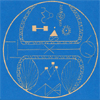 The liner notes read "No computers or electricity were employed in themusic making process." How that is possible baffles me, so I figure itmust be a joke or a half-truth. On the other hand, how a record wasmade rarely matters to me more than how it comes out sounding and Rooting for the Microbesis a bit of a mixed bag in that respect.
The liner notes read "No computers or electricity were employed in themusic making process." How that is possible baffles me, so I figure itmust be a joke or a half-truth. On the other hand, how a record wasmade rarely matters to me more than how it comes out sounding and Rooting for the Microbesis a bit of a mixed bag in that respect. Good or bad, dark ambient albums rarely get much of a rise out of me.While I can usually appreciate an artist's attempts at creating acertain mood or feeling, I have heard enough "haunting sonictapestries" over the years that it takes a lot to impress me. The glutof releases from obviously untalented bedroom producers in this genrecertainly doesn't give a reason to get excited. While by no means arevolutionary work, As Giants Watch Over Us,the third Ad Noiseam release from James Keeler, benefits from itswillingness to use intrusive sounds among its more subdued spookydrones. "Empire Of The Snake" opens this lengthy album with ominoustextures peppered with sudden bursts and prolonged sections ofswirling, unruly synthesized noise. Breaking from this style, the titletrack exudes a type of frozen paranoia amid the screeching, voicesnippets, and sampled dramatic symphonies. "The Fiddler And The Fool"creeps along much like an updated version of a old horror movie score,shifting gears around three minutes in to dissonance and backwardsloops. The emotive and atmospheric "Reversing Magnetism" plays outbeautifully, with delayed and stretched tones morphing over clickingstatic and low bass. Running over 70 minutes long, at least a few ofthese thirteen somewhat similar tracks could have been whittled down orcut altogether. Nonetheless, both the Cold Meat Industry set as well assound design connoisseurs may find some reward from As Giants Watch Over Us.
Good or bad, dark ambient albums rarely get much of a rise out of me.While I can usually appreciate an artist's attempts at creating acertain mood or feeling, I have heard enough "haunting sonictapestries" over the years that it takes a lot to impress me. The glutof releases from obviously untalented bedroom producers in this genrecertainly doesn't give a reason to get excited. While by no means arevolutionary work, As Giants Watch Over Us,the third Ad Noiseam release from James Keeler, benefits from itswillingness to use intrusive sounds among its more subdued spookydrones. "Empire Of The Snake" opens this lengthy album with ominoustextures peppered with sudden bursts and prolonged sections ofswirling, unruly synthesized noise. Breaking from this style, the titletrack exudes a type of frozen paranoia amid the screeching, voicesnippets, and sampled dramatic symphonies. "The Fiddler And The Fool"creeps along much like an updated version of a old horror movie score,shifting gears around three minutes in to dissonance and backwardsloops. The emotive and atmospheric "Reversing Magnetism" plays outbeautifully, with delayed and stretched tones morphing over clickingstatic and low bass. Running over 70 minutes long, at least a few ofthese thirteen somewhat similar tracks could have been whittled down orcut altogether. Nonetheless, both the Cold Meat Industry set as well assound design connoisseurs may find some reward from As Giants Watch Over Us. 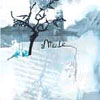 This is an example of a full-length that perfectly, if predictably,fulfills my expectations. aMute's track on last year's Intr_versioncompilation formed the undeniable centerpiece of the disc. If not themost showy piece, it was certainly the most effective, dropping in frombehind the preceding track almost invisibly and, through gracefulcrescendos, sucking the entire sampler into its icy expanse, enough tohaunt the remainder of the disc and nearly summarize the label'smelancholic ethos in a eight short minutes. For his debut album, JérômeDeuson provides not only an extended version of that song, "Aux creuxdes vagues, mon visage," but also seven others that match its moodeasily, creating a work that seems cut from the same graying,crystalline tapestry, full of bristly folds and wide, smothering fuzz.Deuson's technique is nothing shocking, an intricate, but notover-complex entangling of effects-heavy guitar, processed feedbacknoise, and windy, chime-ful ambience, all allowed to dive and swoopthrough layers of minimal bass and the smallest of percussive clicks.None of the tracks are particularly grounded; rather they float in astructure-less haze that serves the cold, discreet passages conjured byaMute's harmonic sensibility, the same economized, somber aesthetic ofhis labelmates Joshua Treble, Mitchell Akiyama, and The Beans. Like hisfriends, Deuson's approach is geared away from bending his guitartowards extremes in distortion or processed disintegration and moretowards crafting careful, meaningful builds via simple melodic strandswith clear resolutions. The frosty ambiance, of scattered windchimesand stuttering drones, carries these tracks into the oblivion theyrequire; however, Deuson's playing maintains a directness that attachesa cinematic feel throughout. Certain left-field inclusions, likemuffled vocal samples and a track of naked French speech, add to thefeeling of remove that I (perhaps too quickly) tend to associate withsome set of fixed visual correspondents. This might form my onecriticism of A Hundred Day Trees,that, for all its sad majesty, the album seems a bit limited in itsexpressive power, leaving me in the same place after each listen. Itcould be the relative homogeneity of the tracks or the similarity toother recent releases by the label, not bad qualities at all, just notenough to prove that aMute doesn't have better in store for next time.
This is an example of a full-length that perfectly, if predictably,fulfills my expectations. aMute's track on last year's Intr_versioncompilation formed the undeniable centerpiece of the disc. If not themost showy piece, it was certainly the most effective, dropping in frombehind the preceding track almost invisibly and, through gracefulcrescendos, sucking the entire sampler into its icy expanse, enough tohaunt the remainder of the disc and nearly summarize the label'smelancholic ethos in a eight short minutes. For his debut album, JérômeDeuson provides not only an extended version of that song, "Aux creuxdes vagues, mon visage," but also seven others that match its moodeasily, creating a work that seems cut from the same graying,crystalline tapestry, full of bristly folds and wide, smothering fuzz.Deuson's technique is nothing shocking, an intricate, but notover-complex entangling of effects-heavy guitar, processed feedbacknoise, and windy, chime-ful ambience, all allowed to dive and swoopthrough layers of minimal bass and the smallest of percussive clicks.None of the tracks are particularly grounded; rather they float in astructure-less haze that serves the cold, discreet passages conjured byaMute's harmonic sensibility, the same economized, somber aesthetic ofhis labelmates Joshua Treble, Mitchell Akiyama, and The Beans. Like hisfriends, Deuson's approach is geared away from bending his guitartowards extremes in distortion or processed disintegration and moretowards crafting careful, meaningful builds via simple melodic strandswith clear resolutions. The frosty ambiance, of scattered windchimesand stuttering drones, carries these tracks into the oblivion theyrequire; however, Deuson's playing maintains a directness that attachesa cinematic feel throughout. Certain left-field inclusions, likemuffled vocal samples and a track of naked French speech, add to thefeeling of remove that I (perhaps too quickly) tend to associate withsome set of fixed visual correspondents. This might form my onecriticism of A Hundred Day Trees,that, for all its sad majesty, the album seems a bit limited in itsexpressive power, leaving me in the same place after each listen. Itcould be the relative homogeneity of the tracks or the similarity toother recent releases by the label, not bad qualities at all, just notenough to prove that aMute doesn't have better in store for next time.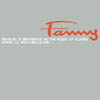 As I mentioned in my review of the Xanopticon album some months back,breakcore seems like the most probable style of music to take over themantle of IDM. Considering the recent Revelry & Decadence as the Right of Slaves:the process-driven pseudo academia calling itself music these daysseems closer to dying out in some mathematical tar pit. Taking a uniqueand harsh approach to this still-blossoming subgenre, Fanny eschews thepost-rave trappings and pop-culture plunderphonics of many of hiscontemporaries on his second full-length album for Ant-Zen sublabelMirex. Instead of hyper-jungle cut-ups and snippets of rap singles,listeners can expect an alarmingly abrasive cacophony that astonishes,aggravates, and entertains all at once. Lunatic tracks like "Salome,""Bacchanale," and "Wine, Women & Sin" abuse and dissect drum loopsto a point where they are no longer recognizable nor decipherable.Keeping with the infamous depravity and lunacy of its namesake,"Caligula" initially bares its teeth with a vicious noisy rhythmpattern before shifting gears dramatically towards a more quirky tribalsound. "Pyramids Of Mars" showcases some bombastic militant drummingalongside its sliced breakbeats and heavily distorted samples. Amongthe equally eclectic and eccentric 20 tracks here are a handful ofshorter pieces that provide amusement and confusion, such as thefractured Eastern grooves of "300lb Transvestite Bellydance" and thecartoonish freakout "Kaliyuga." While many current electronic musicianscontinue to bury their noses deeper and deeper into books and software,Fanny gives all that one giant middle finger salute and keeps the manicfree spirit of acts like Aphex Twin alive.
As I mentioned in my review of the Xanopticon album some months back,breakcore seems like the most probable style of music to take over themantle of IDM. Considering the recent Revelry & Decadence as the Right of Slaves:the process-driven pseudo academia calling itself music these daysseems closer to dying out in some mathematical tar pit. Taking a uniqueand harsh approach to this still-blossoming subgenre, Fanny eschews thepost-rave trappings and pop-culture plunderphonics of many of hiscontemporaries on his second full-length album for Ant-Zen sublabelMirex. Instead of hyper-jungle cut-ups and snippets of rap singles,listeners can expect an alarmingly abrasive cacophony that astonishes,aggravates, and entertains all at once. Lunatic tracks like "Salome,""Bacchanale," and "Wine, Women & Sin" abuse and dissect drum loopsto a point where they are no longer recognizable nor decipherable.Keeping with the infamous depravity and lunacy of its namesake,"Caligula" initially bares its teeth with a vicious noisy rhythmpattern before shifting gears dramatically towards a more quirky tribalsound. "Pyramids Of Mars" showcases some bombastic militant drummingalongside its sliced breakbeats and heavily distorted samples. Amongthe equally eclectic and eccentric 20 tracks here are a handful ofshorter pieces that provide amusement and confusion, such as thefractured Eastern grooves of "300lb Transvestite Bellydance" and thecartoonish freakout "Kaliyuga." While many current electronic musicianscontinue to bury their noses deeper and deeper into books and software,Fanny gives all that one giant middle finger salute and keeps the manicfree spirit of acts like Aphex Twin alive.  Alhough it does little to follow through on its genre-addressing title, cheeky or otherwise, The D&B Album still emerges as one of Bowindo's more accessible releases to date. From the playful motorik pulsings of the opening "Cascocity" it's clear that the musicians choose not the weighted expressionism or colorful electroacoustics that characterized the label's previous output and will opt instead for "electro" alone, forging a new brand of body music for new kinds of bodies.
Alhough it does little to follow through on its genre-addressing title, cheeky or otherwise, The D&B Album still emerges as one of Bowindo's more accessible releases to date. From the playful motorik pulsings of the opening "Cascocity" it's clear that the musicians choose not the weighted expressionism or colorful electroacoustics that characterized the label's previous output and will opt instead for "electro" alone, forging a new brand of body music for new kinds of bodies. DNA played angular freak noise for spastic punks; fiercely intellectual, bordering on the psychotic. The Brazilian-born Arto Lindsay played guitar in the most anti-musical, reptilian brand of non-funk that had ever been heard outside of music hour at the local laughing academy, barking and shrieking like a constipated Artaud in clipped fragments of opaque poeticism. Ikue Mori played a drum set with big taiko sticks in a manner that suggested neo-tribalism but delivered cold, muscular propulsion. Robin Crutchfield's synths unsympathetically reveled in circular insanity, and later, Tim Wright's bass danced around flittingly like a dying mosquito, never finding a foothold, falling over itself in a mad rush to the end of the song.
DNA played angular freak noise for spastic punks; fiercely intellectual, bordering on the psychotic. The Brazilian-born Arto Lindsay played guitar in the most anti-musical, reptilian brand of non-funk that had ever been heard outside of music hour at the local laughing academy, barking and shrieking like a constipated Artaud in clipped fragments of opaque poeticism. Ikue Mori played a drum set with big taiko sticks in a manner that suggested neo-tribalism but delivered cold, muscular propulsion. Robin Crutchfield's synths unsympathetically reveled in circular insanity, and later, Tim Wright's bass danced around flittingly like a dying mosquito, never finding a foothold, falling over itself in a mad rush to the end of the song.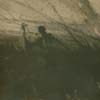 It's been about five years since Andrew Chalk released his last solo effort, Over the Edges.His newest album comes as a vinyl-only release in an edition of 600copies and not only does it look excellent (the sleeve artwork and the little flourishes on the record itself are gorgeous), but it sounds absolutely majestic. Split into two side-long pieces, Fall in the Wake of a Flawless Landscape carries with it the same foreboding energy that 1999's Over the Edgeshad, but it also resonates a ubiquitous calm that feels something likefloating on ocean waves. Chalk's drones stay consistent throughout,relenting only to reveal more ominous tones under the dominant ring anddrag of some timeless organ. The blurred images of the cover bring tomind a haunted spectre traversing some dark plain covered in tallgrasses and of unbearable size; no matter how far that figure travels,the disqueting feeling of infinity is always present. Anxiety dominatesthe album, but so does a sense of privacy. Throughout, I imagine myselfas this fictional pilgrim caught up in some endless search and, at thesame time, that long and lonely feeling opens up some kind of innerpeace, as though I am happy being alone and lost. So far as the soundgoes, Chalk's compositional skills are unbeatable. Whenever the soundsbecome too ghastly or alarming, Chalk shifts gears and somehow invertsthem into striking and monumental sounds of great beauty. Strings buzz,organs disintegrate, and whales bellow their songs over this landscape,all in a harmony that defies any easy explanation. This is what Chalkdoes best though: defy easy anything. Fall in the Wake...occupies several emotional and atmospheric worlds at once: the denseand open, the terrifying and the awesome, and the contradictorypositions of both quiet and loud. It's a difficult middle ground thatChalk finds and weaves into music and it's a difficult middle groundthat few others can accomplish. This release has me anxiously awaitingthe next Mirror album and has put me in the unenviable position ofwanting more solo Chalk music: five years between albums is too long towait.
It's been about five years since Andrew Chalk released his last solo effort, Over the Edges.His newest album comes as a vinyl-only release in an edition of 600copies and not only does it look excellent (the sleeve artwork and the little flourishes on the record itself are gorgeous), but it sounds absolutely majestic. Split into two side-long pieces, Fall in the Wake of a Flawless Landscape carries with it the same foreboding energy that 1999's Over the Edgeshad, but it also resonates a ubiquitous calm that feels something likefloating on ocean waves. Chalk's drones stay consistent throughout,relenting only to reveal more ominous tones under the dominant ring anddrag of some timeless organ. The blurred images of the cover bring tomind a haunted spectre traversing some dark plain covered in tallgrasses and of unbearable size; no matter how far that figure travels,the disqueting feeling of infinity is always present. Anxiety dominatesthe album, but so does a sense of privacy. Throughout, I imagine myselfas this fictional pilgrim caught up in some endless search and, at thesame time, that long and lonely feeling opens up some kind of innerpeace, as though I am happy being alone and lost. So far as the soundgoes, Chalk's compositional skills are unbeatable. Whenever the soundsbecome too ghastly or alarming, Chalk shifts gears and somehow invertsthem into striking and monumental sounds of great beauty. Strings buzz,organs disintegrate, and whales bellow their songs over this landscape,all in a harmony that defies any easy explanation. This is what Chalkdoes best though: defy easy anything. Fall in the Wake...occupies several emotional and atmospheric worlds at once: the denseand open, the terrifying and the awesome, and the contradictorypositions of both quiet and loud. It's a difficult middle ground thatChalk finds and weaves into music and it's a difficult middle groundthat few others can accomplish. This release has me anxiously awaitingthe next Mirror album and has put me in the unenviable position ofwanting more solo Chalk music: five years between albums is too long towait. 
